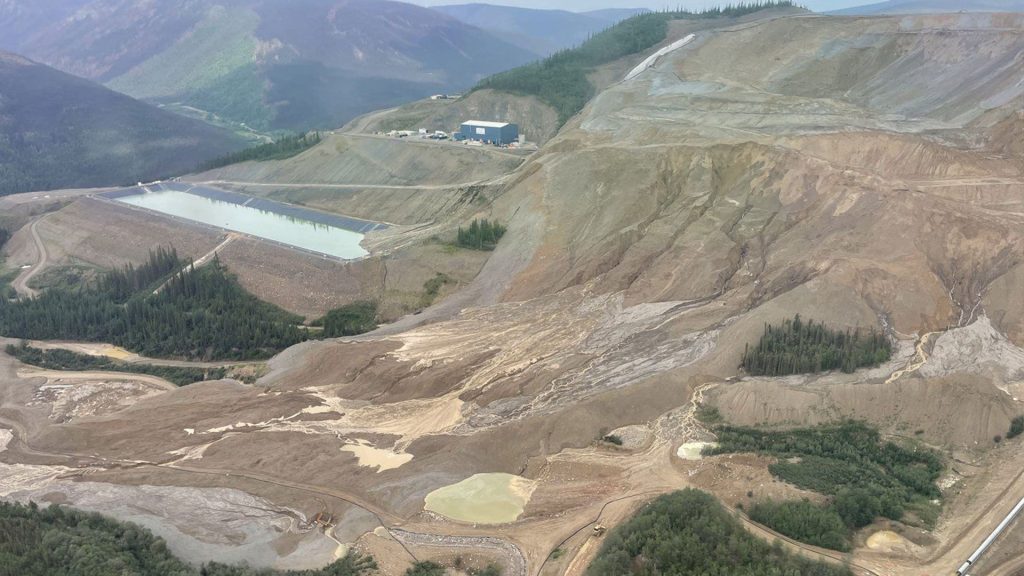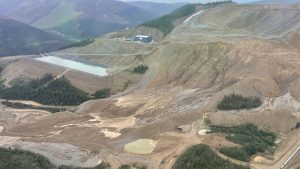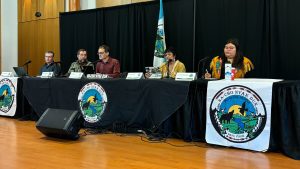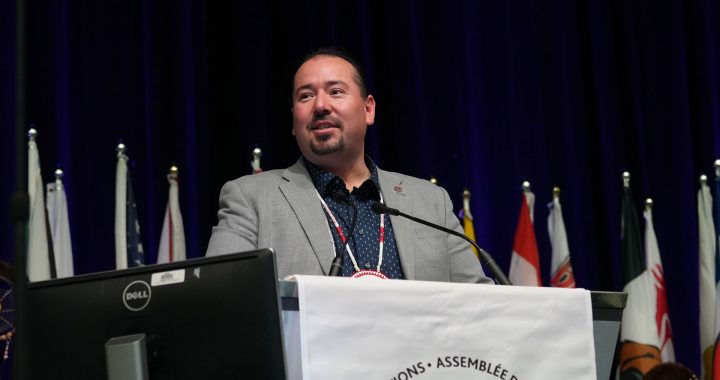
Victoria Gold's Eagle gold mine site north of Mayo, Yukon. Photo: Yukon Government
An Ontario court has granted a request from the Yukon government to appoint a receiver to take control of the Eagle Gold Mine.
The mine, owned by Victoria Gold, is located near the Yukon community of Mayo on the traditional territory of First Nation of Na-Cho Nyäk Dun, or FNNND.
According to a statement from the territory on Wednesday, PriceWaterhouseCooper has been appointed as the receiver.
The government said it took action for several reasons, including the company’s failure to fulfill inspectors’ directions.
“The Government of Yukon has lost confidence in the management team of Victoria Gold Corporation to take the human health and safety and environmental consequences of the June 24, 2024, heap leach facility failure seriously or to respond with the urgency the situation demands,” said a statement from the territory’s Minister of Justice and Attorney General Tracy-Anne McPhee.
The statement said given the complexity of the work required at the site, Parsons Inc. will serve as lead environmental consultant to advise PricewaterhouseCoopers in its role as receiver, including complying with the directions issued by the government.
“This legal action provides a pathway for the required costs of mitigation to be recovered from the assets of the company responsible for the damage to the environment. In addition, it provides a clear and public format for all affected parties to register their concerns and interests and to bring them forward in a court-supervised process,” McPhee said.
Speaking to reporters on Wednesday, FNNND Chief Dawna said her First Nation would support the government’s application.
“It is much needed, and it is much overdue,” she said.
According to government officials, a landslide at the mine site on June 24 released four million tonnes of cyanide laced ore and may have allowed up to 300,000 cubic metres of cyanide and other chemicals to leach into the environment including local waterways.

First Nation likewise files receivership application
Also on Wednesday, FNNND announced it filed its own application to have a third party take over company operations and oversee the clean-up of a toxic spill at the Eagle Gold mine.
Hope said Victoria Gold was failing to protect the First Nation’s lands and waters, which she described as “unacceptable.”
“This action in court is the only way that we can ensure the steps necessary to mitigate this disaster are being taken,” she said.
“We have no confidence that Vic Gold is in a financially stable enough position to repair the environmental damages its failures have caused, and Na-Cho Nyäk Dun has lost confidence in their ability to manage the response to this disaster.”
FNNND’s application, which was filed in Yukon’s Supreme Court on Aug. 13, asks for a third party to take control of the mine and follow steps ordered by the Yukon or Canadian government or other expert entities to “manage the mine site, enter into agreements that will help comply with government orders, engage with experts and purchase or lease equipment needed in the clean up.
It also asks that the third party have the power to “assign VGC into bankruptcy.”
The application further notes the company is behind in its payments to FNNND in excess of $750,000.
“(Victoria Gold) has suspended operations and has publicly announced that there is no assurance that it has the financial resources necessary to repair damage to equipment and facilities or remediate the impacts caused by the incident or restart production,” the application said.

Lawsuit from investors
The company is also facing a lawsuit from investors.
According to a civil claim filed in Supreme Court of British Columbia on Aug. 13, the company made “environmental commitments and safety practices” on operation of the Eagle Mine site including the heap leaching process.
Heap leaching is a process used by some mines to separate gold from ore. A lined pit is dug and then filled with ore. A chemical solution containing cyanide is then sprayed on the ore.
The lawsuit alleges that Victoria Gold Corp., didn’t fully explain the dangers of heap leaching to its investors and that there were “numerous undisclosed red flags and operational and safety issues with the Heap Leach Facility,” that included “oversaturation” of the heap.
According to the claim, Victoria Gold’s share price “declined by over 80% causing significant trading losses to the Plaintiff.”
None of the allegations have been tested in court.
Dead fish
On Aug. 9 Yukon government officials said 68 dead fish were collected from Haggart Creek. The creek is located a few kilometers downstream of the mine’s heap leach facility.
Victoria Gold Corp. discovered dead Arctic Grayling and Sculpin on Aug. 2.
Officials said the company discharged cyanide-contaminated water from the mine’s storage treatment plant into the creek between July 31 and Aug. 2.
“I’m very disappointed that it came to that,” Hope said.
She noted the First Nation is waiting for results to show if the fish died because of groundwater seepage from the discharge or from the initial cyanide spill.
The federal government is also involved in the investigation. The Department of Fisheries and Oceans, also known as DFO, “ordered Victoria Gold Corporation to implement mitigation efforts” following the discovery of the fish.
“For nearly two months we have seen our lands and waters suffer in the face of an inadequate response from the company,” Hope said in the statement. “That stops now.”
History of mining disasters
On July 3, the First Nation released a statement demanding the government stop all exploration and mining activities in its traditional territory.
In a response last week, Premier Ranj Pillai said his government wasn’t prepared to do so.
But Hope said mining on FNNND’s traditional territory must be stopped for the time being.
“We would like the halt until we figure out what is going on and make sure that it doesn’t happen again,” she said.
Hope said it’s time for the government to take further action.
“This disaster is one in seemingly endless line of mining disasters in the Yukon, Farrell, Kino Hill, Mount Nansen, Wolverine, Minto and now Victoria gold. When will government recognize that the status quo is broken? When will government recognize that business as usual is literally killing our people and destroying our way of life?,” she said.
“We must continue to defend our rights that have been rightfully ours since time immemorial. We will never stop fighting to preserve our way of life for now and for future generations.”










